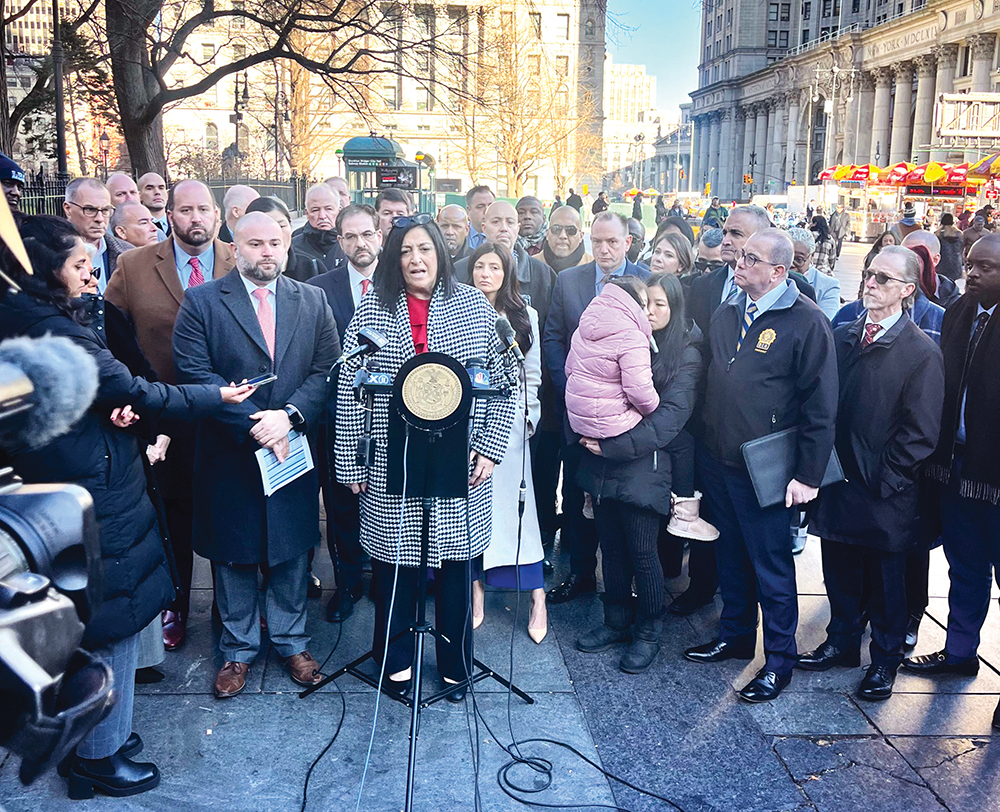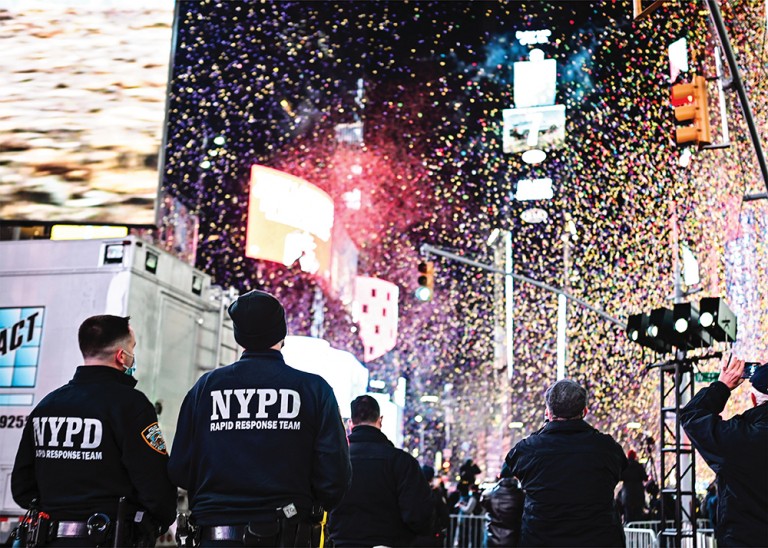By Michael V. Cusenza
The City Council recently voted to pass legislation that would ban solitary confinement in city jails, and approved a controversial bill that would require cops to document virtually every public encounter.
Introduction 549-A, sponsored by Public Advocate Jumaane Williams, would ban solitary confinement in city jails. All people in city custody would have at least 14 hours of out-of-cell time in shared spaces. The new disciplinary process established by this bill would allow separation from the general population only in instances where a person engages in a violent incident in custody. Solitary, even only for a few days, leads to significantly heightened risk of death by accident, suicide, violence, overdose, and other causes. Research shows that people placed in solitary confinement are over seven times more likely to self-harm and six times more likely to commit fatal self-harm. Solitary confinement has also been shown to induce acute anxiety, depression, psychosis, and other impairments which may seriously reduce one’s capacity to reintegrate upon release. In New York City, these disastrous effects are felt almost exclusively by Black and brown people, who make up over 90 percent of all people in city jails, Williams said, later designating solitary confinement “inhumane, and its presence in our city is indefensible.”

Photo Courtesy of Councilwoman Ariola
“The result of these bills passing will lead to nothing short of anarchy in NYC,” Councilwoman Ariola said.
“The Fortune Society applauds the City Council for standing for the humanity of people in our city jails by passing Intro. 549 and outlawing solitary confinement. For too long, and increasingly so over the past two years, Rikers has been a stain on our city—deadly to those who are held there and dangerous to those who work there,” Fortune Society President and CEO JoAnn Page added in a statement. “Solitary confinement does not make anyone in the jail safer and instead causes immediate and lasting psychological harm that ultimately resulted in the deaths of some of our fellow New Yorkers, even years after release. Subjecting anyone to the torture of solitary confinement is a practice that should have been banned long ago. In the name of Khalief Browder, Layleen Polanco, their loved ones, and the countless others who have suffered through solitary confinement, Fortune heralds this long overdue day. We urge the mayor to sign this bill into law.”
The Fortune Society has advocated on criminal justice issues for over five decades and is nationally recognized for developing model programs that help people with criminal justice histories to be assets to their communities.
Introduction 586-A, also sponsored by Williams along with Councilwoman Alexa Aviles (D-Brooklyn), would require the City Police Department to publicly report on all police-civilian investigative stops. Currently, the NYPD is only required to issue reports on “Level 3” or “reasonable suspicion” stops, where an officer has the legal authority to search and detain someone. In 2001, the New York City Council enacted a local law requiring the NYPD to report data on its practice known as “Stop-Question-and-Frisk,” which are Level 3 encounters. In the fall of 2006, the New York Civil Liberties Union learned that the NYPD had failed to follow the law and provide the City Council with stop-and-frisk reports. After the Department finally released the data under pressure in February 2007, it was revealed that stops had grown from about 97,000 in 2002 to more than 500,000 in 2006. The data gathered from these reports showed that Black and Latino individuals were subject to being stopped by the NYPD at disproportionately high rates, accounting for over 80 percent of all stops.
The way NYPD used stop-and-frisk was deemed unconstitutional by a federal court in 2013. Since the decision, the federal court-appointed monitor has repeatedly found the department to be underreporting stops and continuing to conduct unlawful stops. By requiring data reporting for “Level 1” and “Level 2” stops, this law would create a more consistent and uniform reporting standard to address underreporting and close data gaps through improved transparency.
“Effectively producing public safety based on results, not hysteria, means getting critical information about whether and how policing reforms are being implemented on the ground in our communities,” Williams said. “New Yorkers have a right to know this information, and elected officials have an obligation to create policies based on it to ensure community safety and prevent injustices. Through simple reporting on NYPD stops, we can prevent the kinds of bias-based policing we’ve seen in the past, build trust in often over-policed areas, and continue the work that began a decade ago amid the height of stop, question, and frisk. We should all be working together for better policing and safer streets, and we can only do that if we have transparency about how police and civilians interact in our streets.”
According to council leadership, Intro. 586 went through extensive negotiations with Mayor Eric Adams’ administration and NYPD. The NYPD offered several changes of which nearly all were incorporated, including an additional reporting requirement.
“Accountability and transparency are essential to improving public safety, as they are a foundation of sound policing and building the community trust necessary to make our neighborhoods safer,” said Council Speaker Adrienne Adams, a proponent of the so-called “How Many Stops” bill. “Greater access to data on policing has contributed to New York City becoming safer for decades, and the improvements delivered by this bill can yield that same progress for New Yorkers now. Intro. 586 is not about capturing officers’ casual conversations and interactions to assist the public, despite rampant misinformation being spread about the bill. This legislation provides basic data and transparency on investigative stops that intrude in people’s daily lives, and creates a uniform standard of reporting to replace the current inconsistency that has contributed to severe underreporting and data gaps. These investigative stops, which disproportionately target Black and Latino New Yorkers, should no longer occur in the shadows without data to help improve public safety. The reporting required by the bill can be done simply with the smartphones issued to officers by the department, along with its advanced technology. Transparency cannot be feared in a democracy, particularly for policing, because it is fundamental to a democratic society. Our public policy discussions should reflect that value rather than be derailed by a misrepresentation of facts that seeks to incite and weaponize fear.”
The Council Common Sense Caucus led the vigorous opposition to Intros. 549 and 586, characterizing the two bills as significant threats to “the safety and security of New York City’s streets and jails.”
“The Public Advocate, tucked away on a secure army base, is out of touch with what our cops and correction officers face to keep us safe. These bills are a disaster that will diminish public safety on the streets and in our jails,” said Councilman Bob Holden (D-Maspeth), co-chairman of the caucus.
“New York City’s law enforcement agencies are already woefully understaffed, and the legislation up for vote today will further strain the already scarce resources available to them,” Councilwoman Joann Ariola (R-Ozone Park) said last week. “These bills will only make this city a more dangerous place to live, and will prevent our police and corrections personnel from doing their jobs effectively.”
Ariola, a member of the Common Sense Caucus, later added on social media, “The legislation on the table right now would leave patrol officers swamped with paperwork, and would prevent corrections officers from enforcing long punitive action against violent inmates. The result of these bills passing will lead to nothing short of anarchy in NYC.”

